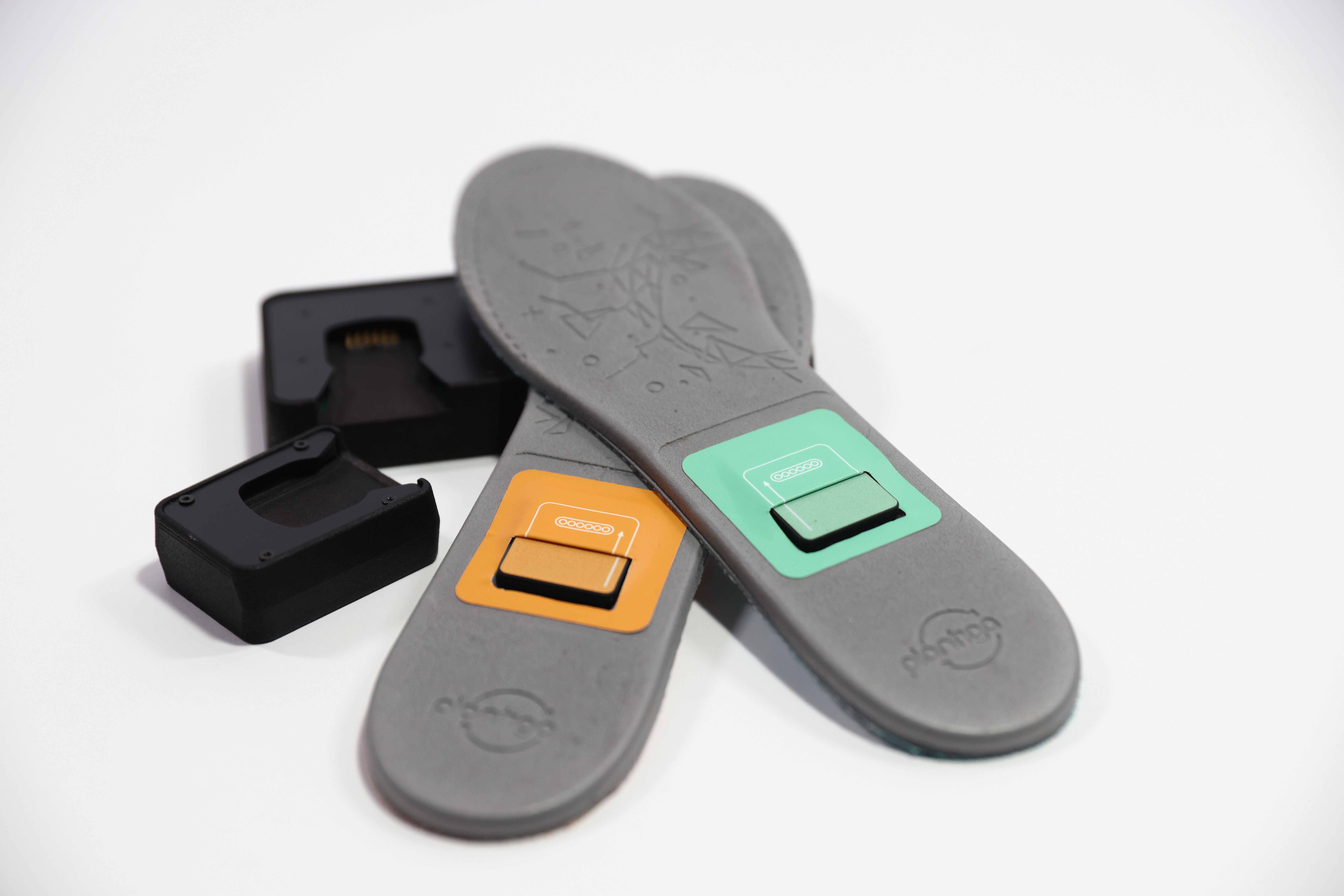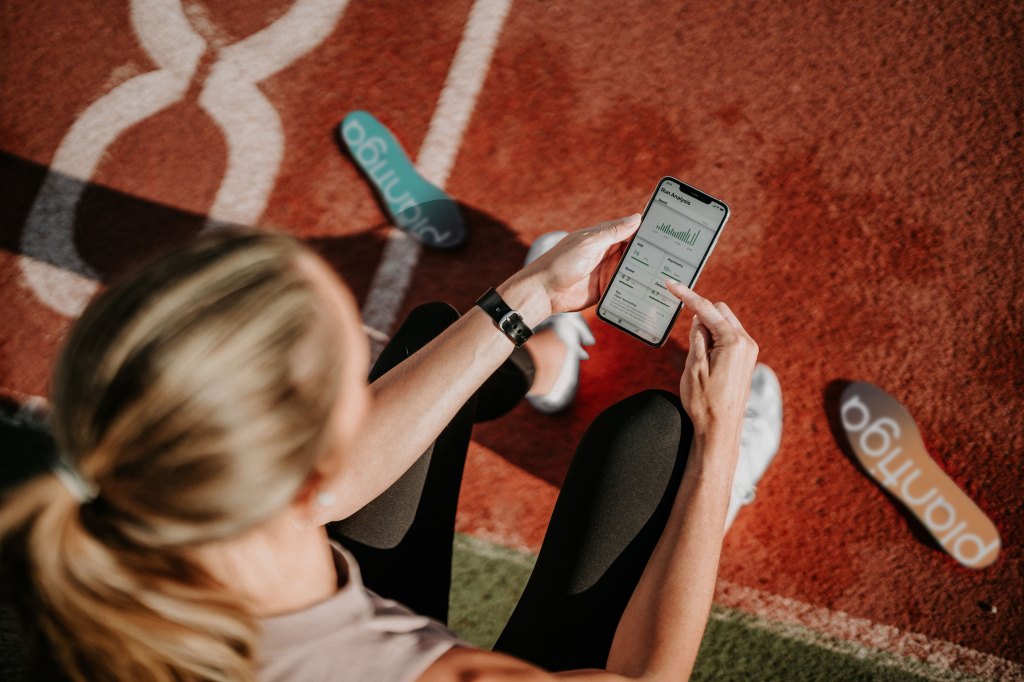Plantiga Technologies, a Vancouver-based movement analytics company, wants to help people improve rehabilitation and reduce injury risks through an artificial intelligence-powered monitoring sensor pod that can be embedded into shoes, orthotics or insoles to analyze users’ movement patterns.
Plantiga is participating in Startup Battlefield at TechCrunch Disrupt 2023, and while it’s been around for a while — it launched the fifth-generation of its sensor pod, Arc5, in June of this year, it’s also had minimal exposure and funding, with only around $5.2 million to date.
Quin Sandler, co-founder and CEO of Plantiga, started the company as a side project with his father, Norman McKay, in 2017. But his father suddenly passed away due to aggressive prostate cancer two weeks after Plantiga got the Seattle Mariners and LA Lakers in a proof-of-concept pilot project, while the company was going through the Creative Destruction Lab’s accelerator program as part of a 2017 cohort.
His late father spent years around gait labs and knew if they could make a gait lab in a shoe, it would change how to monitor people’s health, movement and wellness, which would have “a blue-sky opportunity for a variety of populations,” Sandler says.
Plantiga’s AI is a movement coach called Norman, named after his late father, Sandler adds.
The Arc5 can collect movement data for up to 12 hours, data enabling health experts, whether they are your foot doctor or a specialist connected to a sports team, to make insights into how the person in question in moving. “Movement is a biomarker for human health,” as the company describes it, since it can “predict rehab outcomes, injuries/fall risks, disease progression and optimize performance.”
“We have developed models that will learn how a person moves from four to five sessions, then predict when they move differently from their baseline,” Sandler said. “Our AI learns how a person moves, then can monitor [that] for changes, suggest areas that need to be strengthened, assess limb strength and more.”

The crux of the challenge that Plantiga is solving is one that has been persistent for a long time, even in our age of quantified self-technology. Put simply, measuring people’s biomechanics in real-world settings can be difficult to do. Unlike other movement analytics or wearable devices such as watches and rings that measure parts of your body like lungs or heart, Plantiga’s monitoring sensor pod, the Internet of Things (IoT) system, can be embedded into “any type of footwear” to capture data “ecologically relevant movement” of human biomechanics anywhere — in the gym, on the field or in between — without a camera, cable or additional sensors, Sandler explains.
Plantiga currently has around 90 customers, including elite athletes in sports teams across the NBA, MLB, MLS, NFL, NHL and NCAA, as well as physical therapists, coaches, surgeons, athletic trainers, the Canadian Armed Forces and several other militaries.
Sandler added that it intends to move downstream to the broader consumer market, which is indeed a big opportunity. The global sports tech market is projected to increase to $55.14 billion by 2030, up from $14.72 billion in 2023; the global wearable tech market is expected to grow $186.14 billion by 2030, up 14.6% of the compound annual growth rate from 2023.
On top of that, it is collaborating with a number of major footwear brands on co-development, licensing and distribution, Sandler added.
Its investors include Radical Ventures, Vanedge Capital and angel investors like Haig Farris (founder of D-Wave) and Barney Pell.
Unsurprisingly, Plantiga is in the process of raising another round of funding, Sandler said, without providing the exact funding size. The company, which has nine employees, projects that it should reach profitability in the next six months.































Comment